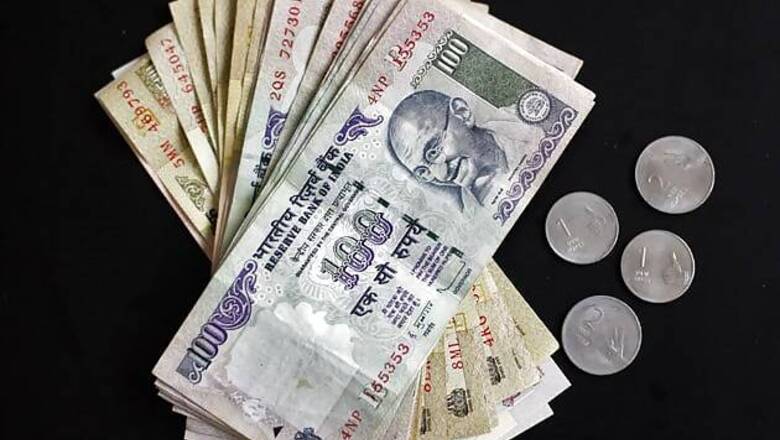
views
New Delhi: A move is afoot in the government to make corruption in private sector a penal offence with imprisonment up to seven years for the offenders.
The government has proposed to make bribery in private sector - both giving and accepting it - a criminal offence by amending the Indian Penal Code (IPC).
The draft Indian Penal Code (Amendments) Bill, 2011, circulated to States and Union Territories by the Centre for their comments, would cover graft by an individual, firm, society, trust, association of individuals, company, whether incorporated or not,which undertakes any economic or financial or commercial activity.
Prime Minister Manmohan Singh had spoken on the issue of changing laws to make private sector bribery a criminal offence at a conference of CBI and state anti-corruption bureaus about seven months ago.
At present, there are no legal provisions to check graft in the private sector.
According to the draft law, whoever in the course of economic, financial or commercial activity promises, offers or gives, directly or indirectly, any gratification, in any capacity, for a private sector entity, for the person himself or for another person shall be punishable.
Besides, it said, if somebody "solicits or accepts, directly or indirectly, any gratification amounting to an undue advantage from any person, who directs or works, in any capacity, for a private sector entity" shall also be punishable with imprisonment and fine or both.
The Centre has asked all States and UT administrations to give their views on the proposed amendments in the IPC.
Explaining the move, an official in the Ministry of Personnel, Public Grievances and Pensions under which the anti-graft agency CBI comes, said local police or any other appropriate agency would be able to register a case and initiate probe against an individual working in the private
sector if the proposed amendments becomes law.
"However, the law and order enforcement agency would have to establish a quid pro quo agreement or a deal between the offenders," the official said. So far most of the states have either agreed to the proposal or suggested some changes in it.
According to a Ministry of Home Affairs (MHA) official, Gujarat, Chhattisgarh, Karnataka, West Bengal, Punjab, Maharashtra, Assam, Haryana, Manipur, Meghalaya, Mizoram, Nagaland, Rajasthan, Sikkim, Tripura, Andaman and Nicobar Islands, Chandigarh, Dadra and Nagar Haveli, Lakshawdeep and
Delhi have agreed to the proposal.
Jammu and Kashmir, Kerala, Tamil Nadu and Daman and Diu administrations have suggested some changes in the proposal, he said, adding that Arunachal Pradesh has offered "no comments" on the proposal.
In its suggestion, Kerala sought enhanced punishment for the habitual offenders. "Committing an offence for the first time cannot be treated on par with habitual committing of the offence. The attempt to commit the offence of bribery and the abetment of the offence are also not made punishable in the Bill.
"Hence, it is suggested that specific provision prescribing enhanced punishment for habitual committing of offence of bribery in private sector similar to the provisions of the Prevention of Corruption Act, 1988 be incorporated in the Bill," it said.
Besides, it suggested "the activities of persons coming under the purview of 'private sector' who dishonestly or fraudulently collects money by way of shares, debentures, bonds or in whatever form, from the public and misappropriating the same for themselves like money laundering or money chain be brought within the purview".
Whereas, Tamil Nadu sought enlisting foreign trip and gift in any form as offence under the proposed amendments.
The State suggested to bring the commercial activity mainly concerned with the bribery activities either in money form or in other way like foreign trip, gift in any form, concession, reduction in rate, selling sub-standard material in priced rate of labelling etc in the ambit of proposed IPC amendment bill.
"There should be a separate provision to prosecute the companies and for cancellation or suspension of their licenses or registration etc," it said. According to Home Ministry official, views from Andhra Pradesh, Bihar, Madhya Pradesh, Odisha, Uttarakhand, Uttar Pradesh and Puducherry have not been received so far.
Officials said the Government would also try to get opinions from industry bodies including Federation of Indian Chambers of Commerce and Industry (FICCI), Associated Chambers of Commerce and Industry of India (ASSOCHAM) and Confederation of Indian Industry (CII) among others.
They said after getting comments from all States, UT administrations and other stakeholders, the draft will be given a final shape and other modalities will be worked out before sending it to the Parliament.
Recently, the Central Vigilance Commission has cited acts of alleged corruption based on Transparency International India's assessment report on 'Implementation of Integrity Pact (IP) in Public Sector Undertakings (PSUs).
"Collusive Corruption, where officials from the public sector undertaking join hands with the private sector, is greatly present in the Indian business environment, particularly in the power, mining and oil sectors," the CVC has quoted the report as saying.




















Comments
0 comment